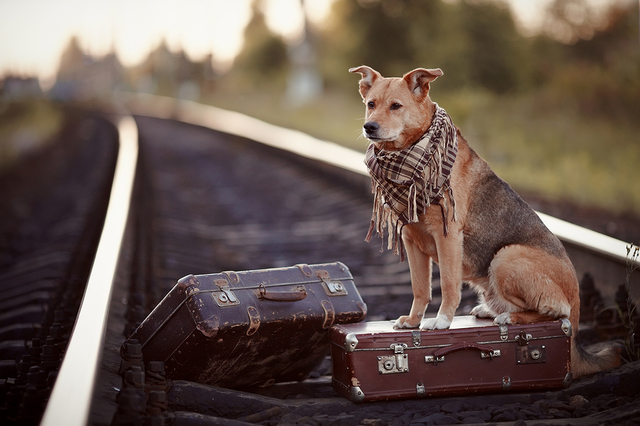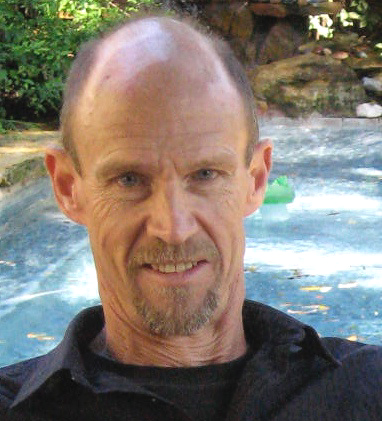Nothing’s lonelier than the conviction that, if you wandered off into the woods alone, no one would come looking for you.

After Marie died, it was just Edward and Max. Max had been Charles’s idea, Charles thinking that a dog was just what his parents needed after Edward retired. Dogs needed to be walked, so one or the other of them would have to get up and get out. Charles didn’t doubt that his parents loved each other, but if they just sat in the house all day they would drive each other crazy.
Edward hadn’t thought of himself as a dog person, so it surprised him how much he’d grown to love Max, an affectionate mongrel whose powerful body and black-and-tan fur suggested a German Shepherd had been involved. Max had a ferocious bark that would scare away solicitors and deter would-be thieves, but a gentle disposition. He loved four things most of all: eating, sleeping, walks, and Edward.
Edward would walk Max three times every day—once early in the morning, a long walk around midday, and a final walk before bed—except for Tuesdays, when he would drive to the college where he had taught math for thirty-five years to have lunch with a group of other retired professors. On Tuesdays, Marie would take Max for his midday walk.
Marie died on a Tuesday. She went to bed Monday night and never woke up. Her heart, they said. Edward felt guilty and selfish, wondering if he could have prevented this by assigning more of Max’s walks to her. And he felt crushed. Edward loved Max, but he loved one thing most of all, and that was Marie.
While the men prepared to take Marie’s body away to the funeral home, Edward called someone in his lunch group to say he wouldn’t be coming. “My wife just died,” he said by way of explanation, the words sounding like they had come from someone else. Eight months later, he hadn’t gone back. Someone had to walk Max.
“You can’t just spend all your time with Max,” Charles said to Edward during one of their weekend phone calls. With Edward in New York and Charles in California, this was how they stayed in touch. Charles wanted his father to return to the lunch group.
“Someone has to walk him,” Edward said.
“You can find a dog walker,” Charles said.
“Where?”
“I don’t know. Look on Craigslist.”
Edward wasn’t sure what that was, and didn’t ask.
One day in the grocery store Edward saw a flyer thumbtacked to a board with DOG WALKER in big letters. There were phone numbers at the bottom on little white paper flags you could tear off, though no one had torn any off yet. Edward tore one off.
Max growled when the dog walker knocked on the door, but whimpered happily once Edward let her in. He spun in tight circles as she leaned down to pet him. Only she didn’t just pet him. She sank her slender fingers into his dark fur and worked them like a masseuse. Max leaned into the woman, then flopped down and rolled over on his back. His skinny penis lipsticked out a half-inch or so. Edward reddened with embarrassment. Max had been fixed, but still.
“I’m Jocelyn,” she said, straightening up. She was medium height, with wavy shoulder-length brown hair that she tucked behind an ear before reaching out to shake his hand.
“Edward.”
“And this must be . . . ?”
“Yes. Max.”
Edward showed her where the leash and poop bags were and went over the detailed map he’d drawn of his and Max’s lunchtime walking route. He wrote her a check for twenty-five dollars, told her when he’d be back and where to put the key when she left (in the door slot), and headed off to his lunch.
It was about a twenty-minute drive to the college, and the whole way there all Edward could think about was Jocelyn. She had big round eyes, dark with some sadness in them, and a bit of jowliness in her face, some extra flesh there that made it unusually expressive. She’d dressed unremarkably, though sensibly for a dog walk, in jeans and a loose-fitting gray coat, and he guessed she was probably one of those women who wished they could lose a few pounds. She wasn’t what most people would call beautiful, but there was something about her. She brought to mind a conversation Edward had once had with the lunch group about the Fibonacci numbers, the mathematical sequence in which each number is the sum of the previous two—1, 1, 2, 3, 5, 8, 13, and so on—which can be found in famous works of architecture like the Parthenon and the Acropolis, and even in the odd-looking round building in the middle of their own campus, the one they almost tore down because the board president thought it was ugly. They could see it from the window of the faculty dining room, sitting there like an alien spaceship, and it was what had started the conversation in the first place. Edward had explained how you could find the sequence in pineapples, artichoke leaves, beehives—ordinary things, yet embodied with a mathematical formula associated with beauty. Around the lunch table his colleagues offered up other examples: the music of Mozart, Da Vinci’s Annunciation. Even, according to Doris, a gray-haired biology professor and the only woman in their group, the ratio of length to width in a woman’s uterus during her most fertile years, an example that left an awkward silence in its wake. Edward wondered if something like this—more like the pineapple than the Parthenon (or the uterus)—might have been going on with Jocelyn. He imagined going around and around her with a measuring tape while she held her arms out, and for the first time in eight months he laughed out loud.
Jocelyn was young, though likely past her most fertile years. Mid-thirties, Edward guessed. Young enough to be his daughter. Granddaughter, even, if you did the math.
The lunch group gave him a warm welcome back, inquired about his health, asked about Max. Edward enjoyed their company, but didn’t say much. As he drove home he hoped Jocelyn might still be there when he got back, and felt a sting of disappointment when he found Max there by himself. He sank his hands into Max’s fur like Jocelyn had done and brought his face down close to see if he could smell a trace of her there.
“I found a dog walker,” he told Charles that week when they talked.
“That’s great!” Charles said. “How’d you find her?”
Edward told him. “Her name’s Jocelyn. Jocelyn King.”
“Did you check references?”
“No, but she’s good. She’s a dog person. She loves Max. Max loves her.”
Charles asked more questions about Jocelyn King that Edward could not provide answers to.
“Dad, you’ve got to vet these people.”
“No pun intended,” Edward said.
“Seriously, there’s a lot of crooks looking to take advantage . . .” His voice trailed off.
“Of senile old people?”
“I’m just saying you’ve got to be careful.”
“You’re the one who wanted me to get a dog walker.”
A gap of silence as big as a continent opened between them.
“I think it’s great you’re going back to the lunch,” Charles said finally.
The next week, Edward didn’t go to the lunch. After Jocelyn arrived, he drove off as usual, but then doubled back and parked in a place with a view to the walking route he’d plotted, so he could watch her walk Max but she wouldn’t see him. He took a newspaper so he could cover his face if she happened to look in his direction. She wouldn’t recognize the car, a nine-year-old silver-gray Toyota indistinguishable from about a zillion other cars on the road.
The route wound through the neighborhoods to a park with a playground, where children would pet Max and throw balls and sticks for him. Max loved this part of the walk.
But Jocelyn didn’t take Max to the park. Instead they veered off into the nearby woods. He considered following them there, but that would require leaving his car, lurching about and hiding behind one tree after another, stalking skills he lacked. So he sat and waited, but they never came out. They must have found a different way out and walked back to his house from there. Edward wouldn’t know, because in thirty-five years of living in this neighborhood he had never been in those woods. When he drove home—after waiting long enough so that it would seem as though he’d gone to his lunch—Max was there alone, the key on the floor under the door slot.
The following week, Edward did the same thing. It was early April and still felt more like winter than spring. It had snowed some the night before, and Tuesday was cold, raw, and drizzly. Edward sat in his car bundled up in his overcoat and a navy-blue ski cap. Once again, Max and Jocelyn disappeared into the woods. Edward started the car, turned on the heater, and sat there thinking.
He thought about age. He would turn seventy-four in June. Old, by conventional standards, though he didn’t feel old. Or rather he didn’t know what old felt like. Sure, he was creakier than he used to be, but he was still fit. Walks with Max helped keep him that way, plus he’d started going to the gym twice a week to lift weights, after Charles had told him it would keep his bones strong. The conversations at the lunch gatherings so often turned geriatric, full of prescription plans and joint replacements and elaborate dental procedures, and when they did this Edward just tuned out. He didn’t miss the lunches much.
A knock on his car window interrupted his ruminations. The face he saw through the snaking water droplets was unmistakably Jocelyn’s. He lowered the window, his mind racing in search of a plausible reason for being there.
“Edward?”
“I didn’t go to the lunch,” he said.
“I can see that.” Max, delighted to see Edward, hopped up and put his paws on the door. Jocelyn pulled him back and told him to sit. “What are you doing here?”
Edward had not thought of a good answer.
“Are you watching me?” she said, that expressive face scrunching with the question.
“No. I—”
“You are watching me.” Indignant now.
“It’s not that. It’s—” Edward hadn’t figured out a way to say what it was. “Look, why don’t you get in and I’ll drive you and Max back—”
“We’ll walk, thank you.” Jocelyn pulled Max away and walked briskly off. Edward watched them walk away, and then drove home.
He got there before they did and was beginning to worry they would never come back when he heard footsteps outside his front door. He opened the door, Max ran inside, and Jocelyn stood there holding the leash out to him. Her eyes were red. She’d been crying.
“You don’t have to pay me for today,” she said, her voice cold and raw like the weather.
“Of course I’ll pay you for today.”
“How long have you known?”
“Two weeks,” he said with a shrug, baffled as to why her detour into the woods was such a big deal. He began to question her emotional stability.
“Fucking internet,” she said. She started to cry again and turned to go.
Edward was confused. What did the internet have to do with anything? “Jocelyn, wait—it’s not what you think,” he said, not because he had any idea what she was thinking, but because, well, because it just couldn’t have been.
“You’ve got to fire Jocelyn King,” Charles said that week when they talked.
“Why?” Edward said. The point seemed moot now.
“You won’t believe what I found out.”
“What did you find out?”
“She’s on a registry. Dad, she’s a pedophile.”
The word seemed all wrong. Images ran through Edward’s mind, but they didn’t match the person. It didn’t make sense. How long have you known? Jocelyn had said to him. Was this what she was talking about? Still, his instinct was to come to her defense. “Are you worried she’ll rape me?” he asked Charles.
“Be serious. You need to get rid of her.”
“It’s too late for that,” Edward said. “She quit.”
For Edward, the shock of the news about Jocelyn morphed into a strange kind of hope. Her outcast status limited her options, made it less likely there was someone in her life. He even, a bit perversely, found hope in her alleged acceptance of arithmetically unorthodox relationships. Except it wasn’t alleged. She was on a registry. But hadn’t she paid her price? Whatever had happened, it might describe who she had been, but it wasn’t who she was now. Or so he convinced himself. He wanted her to come back. He would call her and ask. Plead, if he had to. Beg.
He called her. As the phone rang he felt like a nervous teenager calling for a date, and when it went to voicemail he hung up, needing some time to think about what message he could possibly leave that might get her to call him back. He decided on simple and straightforward—Hello Jocelyn, this is Edward. Please call me back. Or Hello Jocelyn, this is Edward. I’d like to apologize for the other day. Please call me back. He practiced please over and over again, aiming for a touch of yearning without overdoing it. He called again and this time she answered, not hello but “What do you want?”
“I want you to walk Max on Tuesday. I’m sorry about . . .” He wasn’t sure how to finish.
There was a long pause, long enough that Edward thought she might have hung up. “Please?” he added, and then to his astonishment she said, “Fine.”
On Tuesday, they walked Max together. Edward suggested it—he said they needed to talk—and Jocelyn’s jaw clenched, but she didn’t object.
“How did you find out?” she asked.
“My son, Charles. We talk on the phone every week. He found out. But last week, when you saw me in the car? I didn’t know, then. He hadn’t told me yet.”
“It’s not what people think,” she said.
They walked a ways while Edward waited for the question he felt compelled to ask to go away, but it didn’t. “What was it then?”
She was twelve, she said, in a foster home—her third, at that point in her life—with an older foster sister and her foster mother’s ten-year-old biological son. The boy came to her, curious. She supposed she was curious, too.
“We were in my room,” Jocelyn said. “His mother walked in.”
Edward waited for something more. “That’s it?” he said.
She shrugged. A social worker came to the house. Then a policeman. “Then juvenile for four years. A condition of getting out was lifetime on the list.”
Edward didn’t know what to say. He had no idea things worked like this.
Jocelyn took a deep breath and blew it out all at once. “So I walk dogs. When people find out, I move and walk other people’s dogs. And they always find out. I’m not allowed to change my name, and the list is easy to search. I figured that’s what you’d done.” They stopped while Max sniffed a bush. “Last week, if you didn’t know, why did you follow me?”
Edward swallowed. He felt her looking at him while he watched Max sniff. “Because I like you,” he said.
They continued walking. Edward wasn’t sure he’d said it loud enough.
As they approached the park, she stopped him. “Can we go through the woods?” she said.
“Max loves the park,” Edward said.
“Please?”
“The kids pet him.”
“Edward,” she said. The look in her eyes, the slight shake of her head. He understood. The playground. The small children. The unforgiving laws that governed things like this.
“The woods then,” he said.
She hooked her arm though his as they walked.
This was new territory for Edward, a narrow path through woods that were surprisingly dense for being in the middle of a suburban neighborhood. Jocelyn pointed things out: tracks made by a fox, a piece of blue shell from a robin’s egg, early skunk cabbage sprouting near a stream. Max sniffed the air and strained at his leash, pulled by scents only he could detect. Then suddenly he thrust backward, slipped his collar, and bolted off into the woods. Marie always told Edward he kept the collar too loose. At work Edward had refused even to wear a tie. Why subject a dog to something he couldn’t tolerate himself?
This was why.
“He’ll come back,” Jocelyn said. Max was smart, loyal. So they waited and called his name. Ten minutes felt like hours, an hour like eternity. They split up and searched, calling for him. They kept this up until dusk, searching the woods, the adjacent neighborhood, Edward going alone into the park. He was in a panic, too distraught to think straight. Jocelyn said they should go back to his house to figure out what to do next. She said maybe Max would be there.
Max wasn’t there. Edward’s mind went wild with scenarios he described to Jocelyn, none of them good. Max hit by a car. Max turning feral and joining a pack. Max mauled by bears (not that there were any). Max alone and lost, cold and hungry, wondering why he’d been abandoned. Max stolen and forced into dogfights where his beautiful body would be mauled while evil men looked on and cheered. Jocelyn, next to him on the couch, let him ramble, told him not to worry, told him it would all work out.
She put her hand on top of his. It felt cool, like Max’s nose. He stopped rambling, content now to sit and be comforted by this woman who knew something about profound loss.
“What do we do now?” he asked.
In the morning they would call animal shelters. They would retrace their path through the woods. They would put up LOST DOG flyers with Max’s picture and a number to call, and offer a reward for anyone who found him. They would staple the flyers to telephone poles, post them in stores. Edward would hand some out to the mothers in the park. He recalled the flyer in the grocery store that led him to Jocelyn. Had he not torn off her number at the bottom, they wouldn’t be in this situation. Max wouldn’t be missing. Jocelyn wouldn’t have put her hand on his.
He found a photo of Max on his camera and watched as Jocelyn set to work on his computer creating the flyer, amazed at her skill manipulating programs and devices of varying degrees of technological sophistication—computer, camera, printer/scanner, scissors—to produce many copies of a compelling flyer, with a picture of a smiling Max looking out and phone-number tabs at the bottom, colored with markers to increase visibility, making them look like tiny prayer flags. Having a plan lifted Edward’s mood. While she worked he fixed them dinner (he was an excellent cook), a pasta dish that he served with a bottle of a good red wine he and Marie had been saving for a special occasion. When they finished that bottle, he got another.
It was almost ten o’clock when they finished dinner. The wine was gone.
“Will you be okay?” she said.
He nodded and thanked her. “You shouldn’t drive.”
“I’ll call a cab.”
“Let me give you money,” he said, but he didn’t move to get his wallet.
She tilted her head sideways, the way Max did when he was trying to understand something Edward had said. “Do you want me to stay?” she said.
They found Max the next morning. It only took a few phone calls. He had wandered from the woods to the park, where a worried mother called Animal Control, and they’d picked him up and taken him to a shelter, the same shelter where Edward got Max six years earlier. A kill shelter. No claim in forty-eight hours . . . Edward imagined Max jumping into the back of the van, tail wagging, excited to be going on a new outing, unsuspecting, boarding the train to Auschwitz.
The shelter smelled strongly of industrial floor cleaner. A young woman stood behind a counter, short, stocky, with a boy’s haircut and a tattoo covering her left arm where it emerged from her smock, which was covered with pictures of puppies. Curled on the floor beside her was Max. He leapt to his feet when he saw them and pawed excitedly at the gate that closed off the counter area from the waiting room.
“Max!” Edward cried, and the young woman laughed and unlatched the gate. Max ran to Edward and then to Jocelyn, where he stayed, turning in small circles as she sank her fingers into his fur.
Edward had prepared Charles’s old room for her, making the bed with clean sheets and pillowcases. He pictured Charles during the last year he slept in this bed, a high school senior, his feet hanging off the end.
Edward went to the counter. “I thought he’d be in a cage,” he said to the young woman.
“He’s too pretty for a cage.”
There was paperwork to complete, a small fine to pay, a boarding fee for one night. Behind him Jocelyn was on her knees, and Max had surrendered to her, rolling over so his belly could be scratched, his pink penis on full unapologetic display.
Edward hadn’t slept. His bedroom shared a wall with Charles’s, and he lay in his bed, listening. He heard the squeak of the old box springs when she got up once. His heart pounded as he listened to her bare feet pad across the floor. He stared at his own door, willed it to open, imagined her coming to him. But then he heard the flush of the toilet, then steps, the squeak of the old box springs, a sigh, silence, a faint snore.
“Do you have his tags?” the tattooed woman said.
“Tags?”
“License. Rabies. Or his papers? To prove he’s yours. Not that there’s much doubt.” The woman looked to where Jocelyn continued to play with Max on the floor. “He sure loves your daughter.”
He could have gone to her. He had thought about it, in the middle of the night, lying in bed going back over and over her words, overanalyzing their meaning: Do you want me to stay? But in the end he could not make his body leave his bed, could not take the risk, the cost of getting it wrong being too high. She was a decent human being trying to help out an old man, nothing more. She didn’t need him. She confirmed this with her snoring, which after a while became a soft whistle.
“She’s not my daughter,” Edward said. He wanted to say something else, but couldn’t find words that felt right. The fact was, he wasn’t sure she was his anything.
Jocelyn had had the foresight to bring Max’s collar with the tags attached, which she withdrew from her purse and handed to the woman.
“What would have happened if we hadn’t come?” Edward asked. “Would you . . . ?” He waved his hand in the air, gesture as euphemism. Put him down. Put him to sleep. Euthanize. Destroy. Kill.
“To Max?” A grin spread on her face. “We were drawing straws to see who would get to keep him.”
This surprised Edward, that reprieves could be granted simply by saying I want that dog, or that cat, or that ferret, or snake. He thought of the thin line that separated those lucky animals from the others, the ones for whom the sting of the needle was the last thing they felt, a thin line drawn there according to some obscure algorithm of desire.
“We will take Max home,” he said, and with the word we Edward put a one with his one to make two, and Max put another one with the two for three, and in that moment at least it all added up, and there was a kind of beauty in that.
Copyright © 2019 by Richard Bader.



